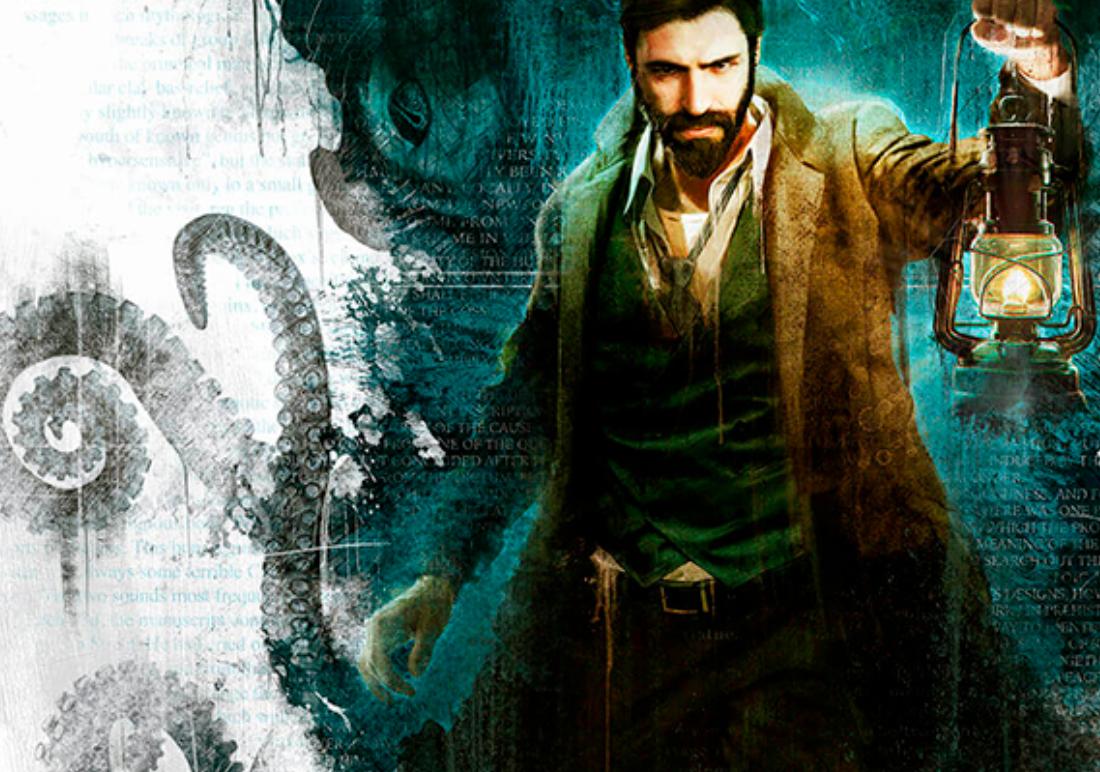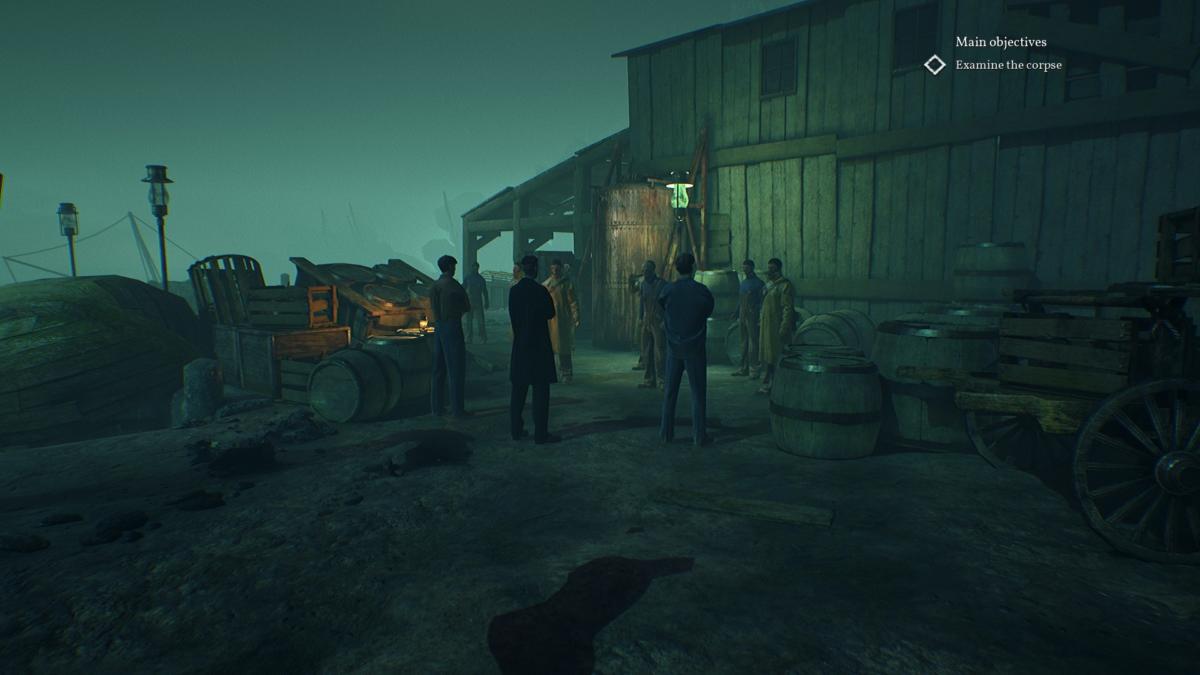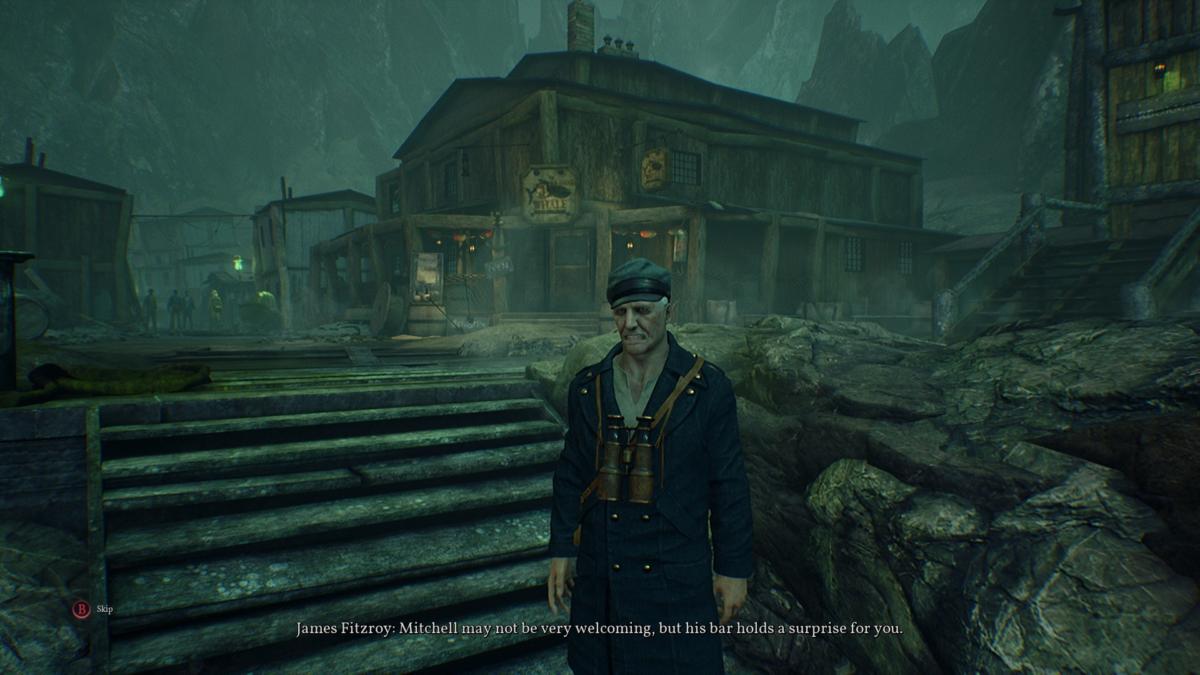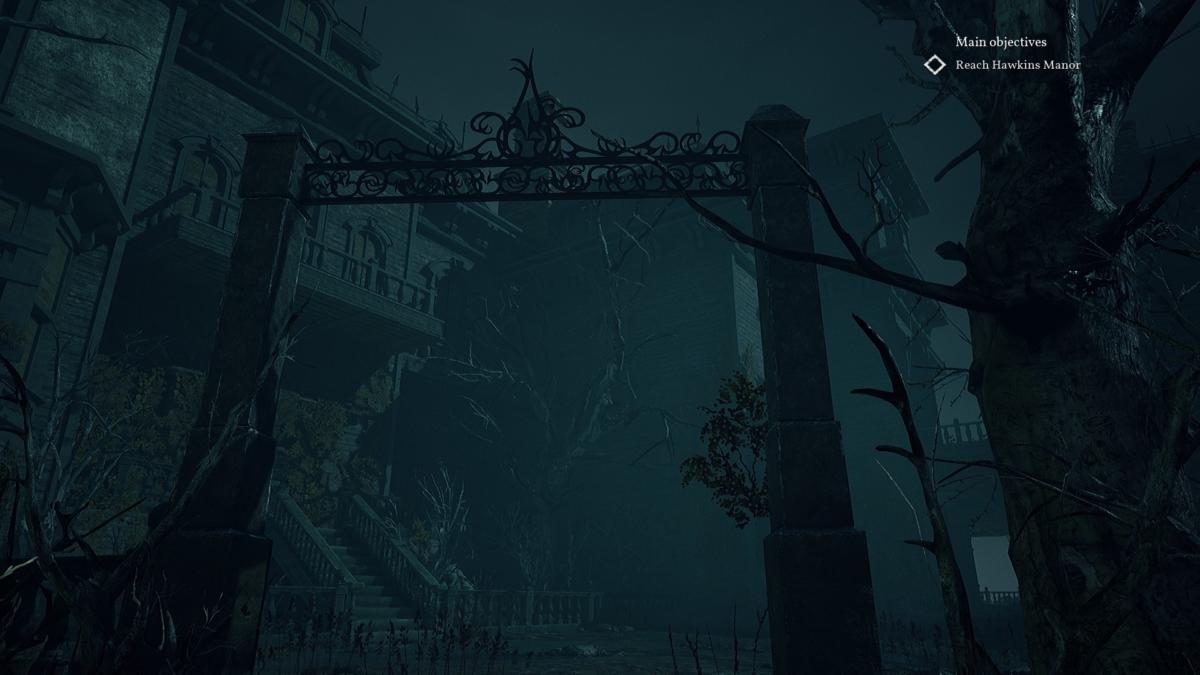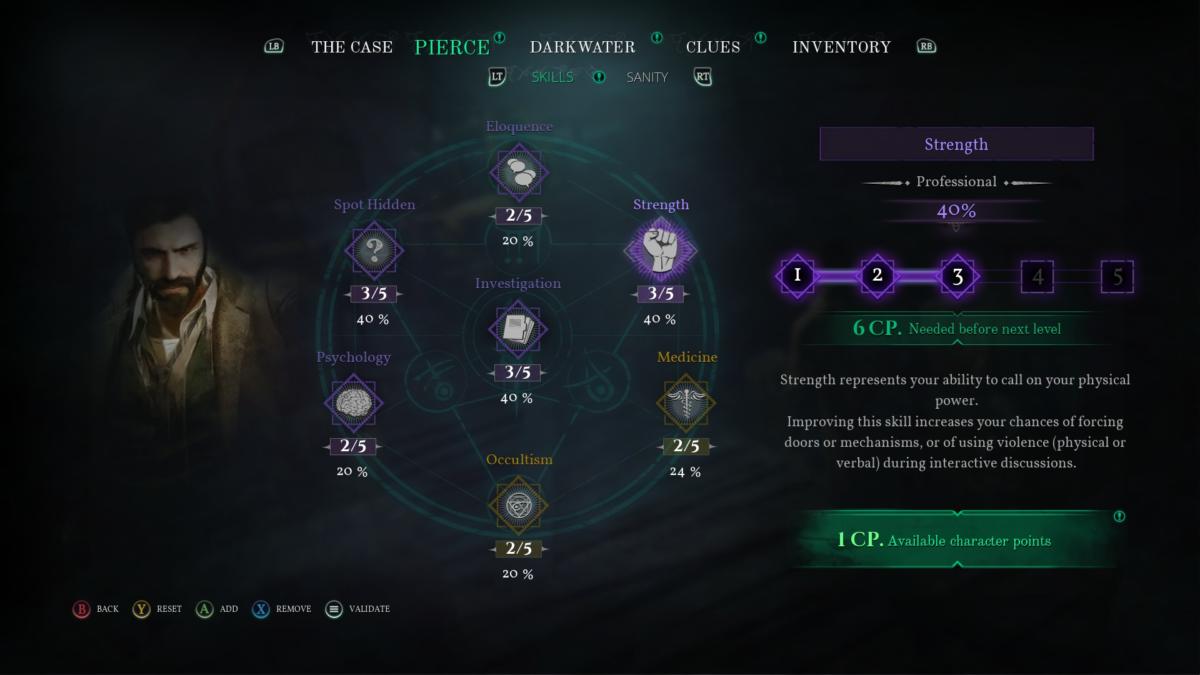Developer: Cyanide Studio
Publisher: Focus Home Interactive
Platform(s): PC, PS4, XB1
Review code provided
I had high hopes for Call of Cthulhu when it was first shown off since I really liked playing the pen and paper version back in the day. Over the years, there have been a few, mostly disappointing, attempts to directly adapt Lovecraft’s stories. It is hard to properly translate the tales made by good old H.P.L since so much of his writing relies upon things being implicit, while video games tend to make things more or less explicit. Lovecraft hints at a grotesque and horrible monster but might never fully show it, while games make you fight it. Lovecraft might write about the futility of fighting certain forces, while video games have you kill them and win. Thankfully, Call of Cthulhu manages to preserve the Lovecraftian sensibilities well and does a really good job at creating a creepy atmosphere despite its shortcomings.
You play as Detective Edward Pierce, a down on his luck and grizzled survivor of The Great War with a crippling drinking problem. He is as cliché a protagonist as they come, but at the same time, there is something endearing in the way the developers, Cyanide Studio, leans into the trope. It is true to the
pen and paper game, which constantly had you play as any number of Lovecraftian or noir archetypes.
It all starts with Pierce having some disturbing nightmares that keep him from sleeping properly and also serves you a great spoon of foreboding.
As you wake up, you are thrust into an introduction of the main gameplay mechanics. When you walk around your office, points of interest are marked, and you can interact with whatever object is there, like a drawer, a newspaper or other objects that catch your eyes. Everything, except some hidden objects, is pretty clearly marked you there is no need to go pixel hunting. Here is also the game’s first ‘moral choice’: do you give in to Pierce’s demons, or resist them? The whole game plays a little bit like a cross between a Telltale game with a walking simulator that has been given a generous dusting of RPG mechanics on top. Certain actions and especially dialogue options come with stat checks and some objects cannot even be found in the world if your perception isn’t high enough. It even has a ‘Cthulhu will remember that’ mechanic whenever you do something that is of significance for the outcome of your fate or the story.
Soon your little cozy booze-addled life is interrupted by a distraught father who hires you to investigate the death of his beloved daughter, an artist with a penchant for drawing some disturbing art. The investigation takes you to Darkwater, a small island off the coast of Boston, and it soon becomes clear that all is not what it seems and that plenty of people have things to hide. If you have read any amount of Lovecraft it is obvious where things are heading. There is the talk of a legendary catch by the whalers many years ago that both saved and doomed the island. There are old and powerful families who live in decadent mansions and there is plenty of decay and neglect in the town itself. On top of this everyone in town seems to be suffering from insomnia. It deals with a lot of Lovecraftian tropes and does little to hide or subvert them, which is completely understandable given the game’s title. Old Uncle Squidface is stirring in his deathless sleep and it sets peoples minds teetering on the brink of madness. Pierce’s sanity does play a role in the game and the more esoteric information you gather, the looser grasp on what is real and what is not you will have. It leads to some neat tricks, but it is also not an overbearing aspect of the game either.
Overall, the atmosphere is great, despite the muddy graphics, and a lot of things are distinctively Lovecraftian and unnerving. But Call of Cthulhu also has a ton of problems that become apparent just as soon as you see the mist surrounding Darkwater. Dialogue is well acted but inconsistent. Accents are all over the place: for a small island off the coast of Boston, Darkwater sure is home to a very diverse group of people. Lip-syncing is not great but much worse is that the dialogue is not well represented in the game world itself. Characters will consistently refer to things that haven’t happened yet or comment on areas they haven’t been to or on things they cannot see from where they are standing in the game world. They will shift tone and opinion on a dime and at one point another character offers to come with you to help rescue someone, but in the next scene he is just gone and doesn’t show up again until the next chapter.
This, together with some very stiff and exaggerated animations, makes an already muddy looking game seem like it came out in the early days of the last generation of consoles. Even the first real area you explore, the Darkwater dock, isn’t great. It is painted in the broadest Cthulhu brush I have yet to see; everything is green with very exaggerated architecture and design. That particular area is also filled with repeating ambient dialogue that makes everything just seem like it’s part of Cthulhu land at Disneyworld. If this was an action game, some of these things might have been overlooked but since the whole gameplay is about investigating and looking at every nook and cranny, things like this stand out all the more. For all these faults, it isn’t exactly bad. It has a certain charm that I would compare to some low budget horror movies. It is not a prestige horror — Call of Cthulhu fits snuggly in the Friday the 13th camp of horror and while those movies can be enjoyable to watch, they are not for everyone.
One thing that Call of Cthulhu gets right, though, is its overarching story, drawing upon many of Lovecraft’s and subsequent writers’ work in what is today mostly lumped together as the ‘Cthulhu Mythos’. You’ll be treated to things out of Pickman’s Model, The Haunter of the Dark and The Shadow over Innsmouth, to name a few. Call of Cthulhu has a lot of interesting twists and the game’s investigation mechanic is fun to use albeit somewhat basic. In certain areas, you can go into a sort of batvision, which lets you look for clues and puzzle together events to recreate what has happened. It fits the character’s background and also makes good use of the different skills you have.
Even if some aspects of your investigation are very predictable, I still really enjoyed seeing this tale all the way to its conclusion. The end of the game is also much better executed than its beginning, perhaps because it deals with smaller areas and fewer people, so dialogue and animations don’t stand out as much. It is also not until the mid to late game that you start to see the really interesting areas and aspects Call of Cthulhu has to offer. It is then that the sanity aspect comes into play and it is also not until then you get a grip on how all the skills work.
The skill system fits the game well, but it doesn’t really explain itself and it is hard to know exactly what to prioritize. I don’t get the feeling that anything gets completely unavailable if you have the wrong skills; you’ll just have to go about things in a different way if you have higher psychology than strengths in some situations. It is just such a shame that a lot of the early parts are so rough around the edges and might put a lot of people off from seeing the great parts of this game.
Call of Cthulhu is a perfect example of a game that needed some more spit and polish before being released. Everything from the game’s visuals to its animation and even some of the world building feels like it came out of the early PS3/360 era rather than today. What it does have is tons of atmosphere and a genuinely Lovecraftian story that does a decent job of scratching that eldritch itch. It also earns a gold medal for resisting the urge of putting in tacky combat mechanics: the game has some limited combat, but it’s handled in a good and suitable way.
Some of the coverage you find on Cultured Vultures contains affiliate links, which provide us with small commissions based on purchases made from visiting our site.
